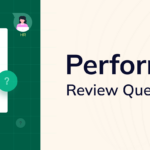A foolproof business strategy, a qualified workforce, enough cash flow, and high-quality products/services- are the primary things you need to run a successful business. You have less control over the external environment. But when it comes to managing the internal office, everything boils down to human resource management. And more so HR Management in organizations brings a sense of stability to each of its key departments.
All your employees are human. If you can manage them well and ensure optimal performance, your business is more likely to attain its goals. And, you’re nearly doomed if anything goes wrong while managing your human resources. So, the importance of HR management in organizations is beyond description.
In this article, we’re going to discuss the roles of HR management and why it’s essential to have an efficient HRM department in organizations. Before delving into the deep, let’s know what HR management is and how it works in organizational environments.
What Is HR Management in Organizations?
Human resource management refers to the recruitment, management, and development of human resources and each decision related to the people working in an organization.
Well, that’s a pretty simple definition. Let’s find out what renowned scholars said about human resource management.
According to Gary Dessler, a notable Author, and Professor:
Human resource management is the process of acquiring, training, appraising, and compensating employees and of attending to their labor relations, health & safety, and fairness concerns.
According to Edwin B. Flippo, the author of Principles Of Personnel Management:
Human resource management is the planning; organizing, directing and controlling of procurement, development, compensation, integration, maintenance, and separation of human resource to the end that individual and societal objectives are accomplished.
To sum it up, HR management is the streamlined process of designing jobs, hiring employees, developing skills, ensuring everyone’s wellbeing, planning company policies, evaluating performance, and managing compensation and benefits.
Also read: Top HR Books to Improve Human Resource Management Skills
Importance of HRM in Organizations
The human resource department empowers the workforce by collaborating with other departments. The line managers work closely with the HR department to recruit new members, evaluate employees’ performance and take appropriate actions to elevate their contribution to the company.
HRM staff are also responsible to save the company from lawsuits and prevent workplace chaos. Their main goal is to maintain balance among all of the organization’s stakeholders- customers, managers, employees, owners, and stockholders. The following section looks at the importance of HRM in organizations in detail.
- Strategic Management: The HR department contributes significantly to attaining the organization’s business goals. It facilitates the decision-making process for business owners by assessing current employees and analyzing the need for new employees.
- Internal Branding: It refers to the willingness of the employees to continue working at the company and working as an advocate of the organization to outsiders. It helps employees to own the company and become its brand ambassador. Only an efficient HR department can ensure a culture inside the organization that uplifts the internal branding.
According to Glassdoor, 86% of employees and job seekers research company reviews and ratings to decide on where to apply for a job. If your ex and current employees rate your company better, you’ll get more qualified employees in the future. This is how internal branding directly helps improve the human resources of a company.
- Awareness for Employees: Employees can abide by company policies only when they’re well aware of them. The HR department makes sure that all employees know the terms and conditions of the employment and HR policies. It also informs employees about safety protocols where needed.
- Talent Management: The attraction, recruitment, and retention of company employees are the components of talent management. The HR department motivates high-performing employees to continue their good work. It also provides training and learning opportunities to improve everyone’s productivity.
- Organizational Culture: The inter-relation among employees plays an important role in bringing out optimal productivity. The HR professionals of a company are responsible to maintain a healthy work environment where everyone shows respect to others. A better working environment results in enhanced productivity.
According to CultureIQ, 73% of employers believe that a healthy corporate culture gives their firm a competitive edge.
- Conflict Management: An organization hires people from a variety of educational, social, regional, and cultural backgrounds. Professional and personal conflicts may arise at any point. The HR department tackles such unexpected situations from a neutral viewpoint to ensure nobody gets hurt in the workplace, emotionally and physically.
- Idea Generation: The HR management department is always in quest for ways that can improve the work culture, productivity, and chances of profit for the business. It can also invite ideas from the employees and generate new ideas to take the company to the next level.
The Key Roles of HR Management in Organizations
Human resource management has evolved into a completely new concept in the last two decades. Previously it was all about payroll management, birthday celebrations, team outings, and form circulations.
Simply put, HRM only focused on administrative tasks in the past. But, now it’s more about playing a strategic role to ensure employee satisfaction and the company’s business growth. Let’s delve into the common activities of HR management in an organization.
1. Planning & Organizing
HR management makes sure there’s no shortage of manpower. They plan ahead of time to onboard the required number of employees. They also deal with critical situations when the company needs to lay off employees to keep the business running.
Analyzing the current human resources, predicting future needs, and balancing the demand and supply of human resources is part of planning. The HR department also oversees the overall recruitment and onboarding process.
“SilkRoad statistics say that 53% of HR professionals believe that employee engagement increases when the onboarding process is better.”
participates in creating company policies and an organizational structure within the company. They carefully maintain the hierarchy so that every employee obeys the chain of command.
2. Dealing with Laws
Human resource professionals have to keep them updated on local and international laws that affect the relationship between employees and employers. It’s natural that a few incidents will require the interference of legal institutions. It’s the duty of concerned HR people to be well-versed in rules and regulations regarding employment. The HR department usually handles the following situations where they need to apply their legal expertise:
- Health-care requirements
- Anti-discrimination laws
- Employment termination
- Compensation and wage
- Worker safety regulations
- Local labor laws
3. Employee Retention & Performance Management
Retention is a crucial aspect of the HR management process. Sourcing and onboarding a competent employee is a rigorous process. It needs time, money, and effort. That’s why retaining qualified employees is more efficient than hiring fresh blood.
An employee leaves a company mainly for two reasons- a bossy line manager and a lack of appreciation.
“82% of employed Americans don’t feel that their supervisors recognize them enough for their contributions.”
– Harvard Business Review
HR management evaluates the performance of an employee and rewards him/her with an attractive compensation package or incentives. Sometimes, non-monetary rewards like Employee of the Month, Star Performer, etc. also motivate employees.
Also read: HR Reporting and Analytics For Your Company
6. Learning & Development
The premises of business is changing radically. Employees as well as the company as a whole can’t sustain themselves without coping with the change. HR management department identifies the need for training to help employees excel themselves. Besides, an employee may need to learn new skills to take on new challenges after being promoted.
7. Developing Company Policies
Each company has a set of predefined rules. It operates according to these policies and solves each issue aligning with the company policies. From employment to final settlement, company policies consist of guidelines for the whole tenure of an employee. Here is a list of things HR professional has to take care of.
- Monthly salary
- Health benefits
- Retirement plans (Provident fund, gratuity)
- Vacation time
- Leave policies (sick, casual, annual, and more)
- Bonuses (Festival bonus, performance bonus, profit sharing, etc.)
- Increment policies
- Termination policies
- Reimbursement
- Code of conduct, and more.
Each of these elements is important and works as a reference point for the higher management body when making decisions. The HR department mainly develops these company policies after discussing them with relevant personnel.
8. Top Management Advice
Since HRD is directly related to employee management, it needs to collaborate with all departments. This helps HR professionals advise top management and heads of departments to bring innovative changes within the company for optimal output. These pieces of advice usually include job design, job descriptions, appraisals, and other concerns about policy making.
9. Staying Trendy And Competitive
The use of technology is increasing rapidly in every industry. Many people lost their jobs due to automation. The Corona pandemic has forced many companies to go remote or shut down. Working from home has become a reality nowadays. Hence, each year comes with new challenges. We never know which trend is going to rule in the coming years.
Globally, companies are focusing on hiring people from all races, gender, religion, sexuality, and colors to build a diverse and inclusive workforce. HR professionals take account of the trends and modify company policies and add new sections to keep pace with changes. Moreover, the practice of “Empathy Training” is on the rise nowadays. HR management now focuses more on understanding the feelings of employees rather than pushing them to work always.
According to SHRM, 93% of workers globally who work at an organization that offers empathy training love their organization’s culture.
Most organizations use ERP software or dedicated HR software to manage their employees. It’s the duty of HR professionals to become well-versed in such advanced technologies and use them effectively in organizations.
Power Up Your Workforce Management with a Reliable HRM Software

Piling up your desks with documents and paperwork is an obsolete idea in this era of technology. With HRM management software, you can manage all your documents online related to the employees and share them with anyone when required. You can securely store important pieces of information like workstation transfer, salary increment, payslips, employment status, etc on an HR management tool.
If you have a WordPress website, it’s a lot easier to implement an HR management solution into your business management system. Moreover, many HR management plugins are available in the WordPress eco-system. One such powerful and reliable HR Management tool is WP ERP, which consists of a wide range of HR functionalities.
WP ERP – A Powerful WordPress HR Plugin to Manage Your Employees
Now managing all your employees became a piece of cake with WP ERP. It allows you to create as many employee profiles as you need and store as much data as you have. It is an interactive tool accessible by multiple key departments for seamless operation in organizations.

WP ERP HRM has a WordPress dashboard that shows an overview of the overall company announcements and events such as upcoming holidays, events, birthdays, and names of people who are out, visible to every employee. It has a record of everything an employee does during his entire lifecycle at the company. Here are a few key features of WP ERP HRM that help it stand out among its competitors.
- Easy & Complete Employee Management
- Efficient Document Manager
- Easy Navigation & Quick Insights
- Employee Performance Evaluation
- Payroll Management
- Easy Department & Designation Management
- Employee Leave Management
- Useful HR Reporting
- Emailing & Messaging
Besides helping you in managing your human resources, WP ERP has two more separate modules in the same plugin which include Customer Relationship Management and Accounting Management. It means you get to manage all your key department utilizing one single plugin.
FAQs In Relation to HR Management in Organizations

Hope we have answered all your queries regarding HR management in organizations throughout this article. If you still have any questions, find out whether the FAQ section below answers them or not.
Q1: What are the functions of HR?
The functionalities of the HR department vary in terms of the size, type, and structure of the company. Usually, human resource management comprises a dedicated team of HR professionals responsible for daily operations related to HR.
Smaller companies have HR Generalists who perform a wide range of HR tasks. Big organizations have HR Specialists dedicated to HR functions such as
- Recruitment
- Talent management
- Compensation and benefit calculation
- Immigration & visa handling
- Learning and development management
- Employee retention, and more.
Though these tasks are specialized for a particular post within the organization, sometimes they may overlap with other posts’ responsibilities.
Q2: What are the common HR job titles?
Different companies have different hierarchies. The job titles of one company may be absent in another. Here’s a list of the most common HR job titles as per their hierarchy in descending order.
- Chief Human Resource Officer
- HR Manager
- Recruiter
- HR Executive
- Human Resource Assistant
- HR Trainee
- HR Intern
Q3: What is the most important role of HR managers in an organization?
HR managers mainly distribute tasks to their subordinates and oversee the work process. They make sure that the regular functions of the HR department like recruitment, payroll, leave management, company policy enforcement, and other administrative works.
Q4: How does HR add value to an organization?
HR adds value to the organization by bringing out the best in its employees. The HR department aims at keeping each employee happy and motivated. It also arranges training and development programs to elevate employees’ skills. It facilitates the way of regular promotions and increased compensation as per company policy. Thus, it establishes a win-win situation for both the employers and the employees.
Q5: Why HR software is important?
Software or automated tools save time and increase productivity and efficiency to a great extent. HR software helps manage employees easily and perform HR-related complex tasks with minimal effort. From attendance records to leave history, payslips, working hours, and compensation-benefits data, you can access any piece of information whenever you need it.
If you enjoy reading interesting blogs on trendy topics, then you might want to subscribe to our newsletters for regular updates on resourceful & informative content.














Thank you very much for such a great and insightful article. It has truly helped me understand the role and importance of Human Resource Management. After reading it, I gained valuable knowledge that contributed to me securing my job at Afoyo African Safaris. I sincerely appreciate the effort put into sharing this information.
Thank you so much for sharing this. It means a lot!
I’m really glad the article helped you understand Human Resource Management better and even happier to hear it played a part in you landing your role at Afoyo African Safaris.
Wishing you great success in your new position. You’ve got this!